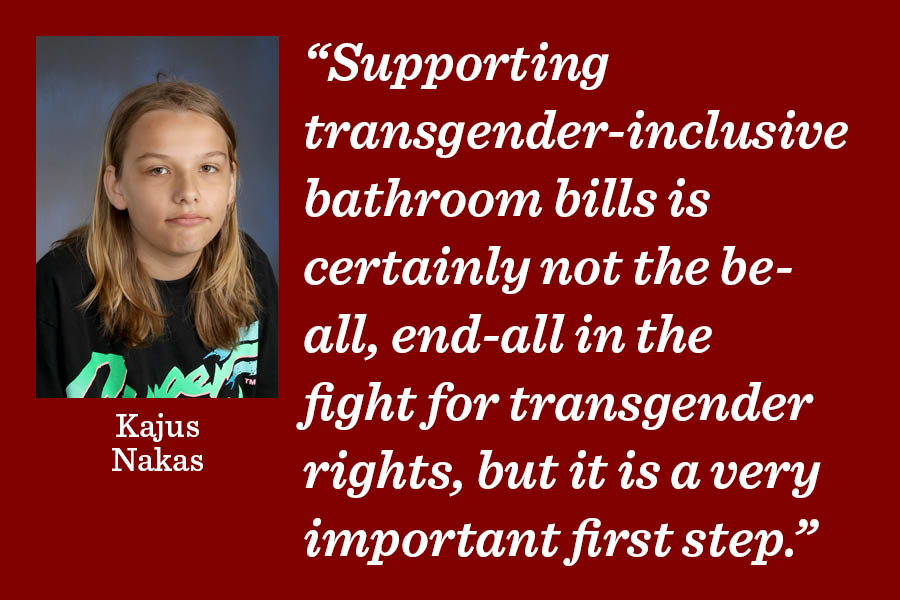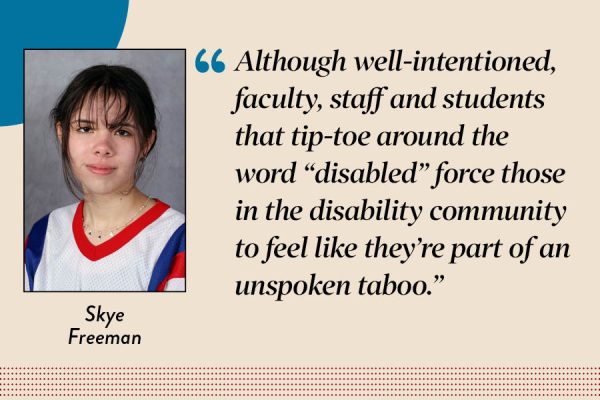Trans-inclusivity should be the legal norm
April 13, 2020
In 2016, North Carolina lawmakers passed the Public Facilities Privacy & Security Act. The bill compelled schools and public facilities that contained single-gender bathrooms to only allow people of the corresponding sex to use them. In North Carolina, sex as listed on a birth certificate can only be changed by people who undergo sex reassigment surgery — an expensive surgery that, to some transgender people, isn’t even a part of transition. The bill was condemned as being extremely anti-transgender, but people who supported it thought of it as common sense legislation.
The bill was condemned as being extremely anti-transgender, but people who supported it thought of it as common sense legislation.
To combat harmful bills like the Public Facilities Privacy & Security Act, trans-inclusive bathroom bills, which would define access to public restrooms by gender, and not biological sex, should be implemented immediately in more states.
A common argument used by people who oppose such bills is that these bills will allow men to claim they are trans women so that they can go into women’s restrooms and assault them. However, the crime rate in bathrooms is not affected by trans-inclusive bills. A 2018 study for the peer-reviewed academic journal Sexuality Research and Social Policy found that the passage of gender identity-inclusive public accommodation nondiscrimination ordinances had no effect on criminal incident reports in public accomodations (public restrooms, locker rooms and dressing rooms) related to sex crimes, assault and voyeurism. The study also found that privacy and safety violations in these spaces are very rare.
Supporting transgender-inclusive bathroom bills is certainly not the be-all, end-all in the fight for transgender rights, but it is a very important first step. A plethora of studies validate the existence of trans people (a UK National Health Service report on gender dysphoria, for one, reaffirmed the validity of transitioning as a path to alleviate gender dysphoria), and others validate the fact that trans people are a marginalized group.
Finally, trans-inclusive bathroom bills are essential to maintain the safety of transgender people. The results of a 2015 survey done by the National Center for Transgender Equality indicated that 9% of the 27,715 respondents had been denied the right to use the restrooms that aligned with their gender, 12% had been verbally harassed in a public restroom, and 1% had been sexually assaulted for being transgender. Currently, in Illinois, there is no law explicitly defining access to public restrooms by gender, and implementation of trans-inclusive bathroom bills in Illinois could be helpful in convincing other states to follow suit.
Trans-inclusive bathroom bills are a necessity to maintain the safety of transgender individuals, and while it is illegal to discriminate based on gender in Illinois public accommodations, these bills should be implemented immediately elsewhere. Contact your local representative and voice your support for trans-inclusive bathroom-bills.


















